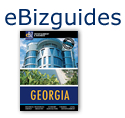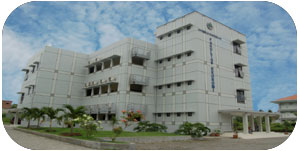 |
|
|
|
|
 |
|||||||||||||||
Welcome from Rector Few universities around Indonesia can match the opportunities that await students at State University of Malang (UM). UM offers a world-class education and our 12.843 Undergraduate and 1.101 Graduate students from all over the country enjoy a student life style second to none. UM was originally Institute of Teacher Training and Education at Malang (IKIP MALANG) which was transformed into a university under the 93 rd President's Decree of 1999. IKIP MALANG was founded in 1954 under the name Higher Education Institution of Teacher Training of Malang (Perguruan Tinggi Pendidikan Guru Malang). In the same year this institution was included to Airlangga University (Surabaya) as a faculty of teacher training, and in 1964 it was transformed into Institute of Teacher Training and Education at Malang (IKIP MALANG). UM is one of senior state institutions of higher education in Indonesia. It offers courses leading towards Sarjana's, Magister's, and doctoral degrees in various fields including education, humanities, arts, sciences, social sciences and engineering. With more than 47 undergraduate programs and 19 graduate programs, students have the flexibility to choose an either or both education or non-education program of study that will lead to national and international recognized qualifications, with a single or double degree. UM understands the expectations of national as well as international students and ensure they receive comprehensive support and a wide range of services. This website is intended as a medium of communication between UM and the public. This website provides general information on the programs of undergraduate and graduate degrees, faculty of Education, Economics, Technology, Science, and Language and Literature. The materials presented here include information on educational programs, research, and community services, general and academic facilities. In addition, the website also provides resources in education which include titles and abstracts of articles and research reports. We do hope that the available information is useful for our visitors. If you have any questions, please do not hesitate to contact us through our e-mail address: rektorat@malang.ac.id or info@malang.ac.id. I look forward to welcome you to UM's diverse community of more than 13.944 students consisting of Undergraduate (Diplomas and Bachelors) and Graduate (Masters and Doctors) Programs of various kinds from around Indonesia and some other countries of the world. UM is a world class university. I invite you to be part of it. Malang at Glance Malang is one of the most attractive hill towns in East Java. It is located between two massive groups of mountains with Semeru and the national park Bromo-Tengger to the east. Due to the altitude, the city enjoys cool, comfortable climate. The fresh, cool weather is not the only thing the city has to offer. In addition to the beautiful landscape, Malang is surrounded by magnificent historical artifacts. Among them are Candi Singosari and Candi Sumberawan, located closed to the Singosari village north of Malang, and Candi Jago and Candi Kidal which are located in Tumpang, east of Malang. The 'colonial atmosphere' of the city is quite obvious. The Dutch had an important military base here until 1949, and Malang was the capital of the district of the same name. Some of the buildings from the colonial period can still be seen in some corners of the city. Today, Malang has developed into one of the biggest cities in East Java, with the estimated population of 720,534 (1997). For quite a long time, Malang has enjoyed the reputation as one of the most important educational centers in East Java. It hosts several tertiary institutions, and is home to three state universities. One of them is UM. The main campus covers 43 hectares (106 acres) which is located in the center of Malang city. Besides this main campus, there are also campuses at the outskirts of Malang and in Blitar. History of UM On October 18, 1954, Prof. Mr. Muhammad Yamin officially opened Perguruan Tinggi Pendidikan Guru Malang (PTPG Malang), or Teacher Education College. The historical event marked the commencement of what now becomes UM, one of the oldest universities in Indonesia. The newly born institution had five departments, with 127 students and 37 lecturers. Prof. Sutan Adam Bachtiar was appointed first rector of PTPG Malang. In 1963, FKIP-Unair converted into an independent institution, namely Institute of Teacher Training and Education (Institut Keguruan dan Ilmu Pendidikan Malang, or better known as IKIP Malang). The emergence of this institution put an end to the previous debates concerning the dualism in the government policy on teacher education in Indonesia. In 1967 it was designated as a Growth Center University by the Director General of Higher Education and in 1968 it opened its first Doctorate Program. The year 1999 marked yet another important change in the institution's status. Based on Presidential Decree No. 93, 1999, IKIP Malang obtained a greater mandate and transformed into UM. Later, referring to the Director-General of Higher Education's Decree No. 143/DIKTI/Kep/2000, five faculties were established: Faculty of Educaton, Faculty of Letters, Faculty of Mathematics and Science, Faculty of Economics, and Faculty of Engineering. The English Department of UM was once recognized by the Ford Foundation as the best of its kind in South East Asia. Why choose UM
Research Institute History Research Institute of UM was established half a century ago. This institute used to be called Research Centre. It was one of the centers of Institute of Research and Community Service of Institute of Teacher Training and Education (IKIP) Malang. In 1982 the centre diverged from the institute and was converted into an independent unit, Research Centre of IKIP Malang. Then, in 1993, the centre upgraded itself into Research Institute of IKIP Malang. Yet, after Surat Keputusan Presiden Republik Indonesia Number 93, dated August 4th 1999 about Widening Mandate of IKIP Malang into UM, the Research Institute of IKIP Malang transformed into Research Institute of UM. Vision Research Institute of UM is an excellent and leading reference institute of research, development, and information of science, technology, art, and culture for both education and non-education. Mission
Main Job and Function
Field of Research
The Faculty of Education History Faculty of Education was established in 1957 as a part of PTPG Malang. At the beginning, the program offered was a Bachelor in Education. Since 1962, the department started to open Sarjana degree with a five year study time. On May 20, 1963, following the formation of IKIP Malang from FKIP-Unair, the education department became one of the four faculties of Institute of Teacher Training and Education. Since August 4th, 1999, as a result of the greater mandate granted by the government to the institution, Faculty of Education IKIP Malang has become Faculty of Education of UM. To bring the faculty to become a reputable institution in education. To achieve that, Faculty of Education has the task of preparing human resources in education fields, developing educational knowledge and implementing the knowledge for the benefit of the society. Department
The Faculty of Letters When PTPG Malang was established on October 18th, 1954, Indonesian Language and Literature Department and English Department, were two of the institution's earliest members. Faculty of Literature and Arts Education was founded on May 1st, 1963, the time when IKIP Malang was established. This faculty had two departments: Indonesian Language and Literature Department, and English Department. In 1983, the faculty was transformed into Faculty of Language and Literature Education, with four departments:
Mission To play an important role as one of the best faculties in the eastern part of Indonesia. This mission is achieved through teaching and learning process of excellent standard, a process that will result in high-quality human resources in the areas developed in The Faculty of Letters. Department
The Faculty of Mathematics & Science Science department, the embryo of what is now known as Faculty of Mathematics and Science, was one of the five departments of PTPG Malang. Faculty of Science Education began operating in 1963, the year when IKIP Malang was established. Later, based on PP No. 27, 1981, the name of the faculty was changed into Faculty of Mathematics and Science Education. The departments were:
Mission
Department
The Faculty of Economics History Economics Department was first established in 1954 as a part of PTPG Malang, the embryo of the present UM. During the period between 1958 and 1963, following the new policy, the department became the member of Faculty of Training and Education Faculty of Airlangga University. Faculty of Social Science Education, under which the previous economics department was located, was established after the faculty was transformed into an independent IKIP Malang. Finally, in 1999, as the consequence of a greater mandate granted by the government, Faculty of Social Science Education became Faculty of Economics. The faculty has since opened both education and non-education programs comprising eight departments. Mission
Department
The Faculty of Engineering History The faculty was established in 1963, with the founding of two departments under Engineering Education Faculty: Mechanical Engineering and Civil Engineering departments. In 1981, FKT was transformed into Faculty of Engineering and Vocational Education. When IKIP Malang became UM, the faculty started to run non-education programs. Mission
Department
Graduate Programs History The Graduate Program of UM was established in 1968. Originally, it was called Graduate Education Program and was integrated into Doctorate Education Program. The program was designed for sarjana graduates who wanted to pursue a doctorate degree in education. The Doctorate program was founded in February 1st, 1977. Three years later, the master's degree in education was offered. Based on Keppres RI No. 60 1982, dated September 7th, 1982, Doctorate Education Program was transformed into Graduate and Doctorate Education Program. Referring to the Ministry of Education's Decree No. 0146/0/1983, the name of the program was changed into Graduate Faculty. Finally, based on P.P. No.30 1990, and Ministry of Education's Decree No. 0311/0/1991, the faculty was transformed into Graduate Programs. Until 2003/2004 academic year, 187 Doctors in Education and 1846 Masters in Education have graduated from this program. Mission
Master's Program (S2)
Doctorate's Program (S3)
|
|
|||||||||||||||
|
|
|
Make World Investment News Your Homepage. |












